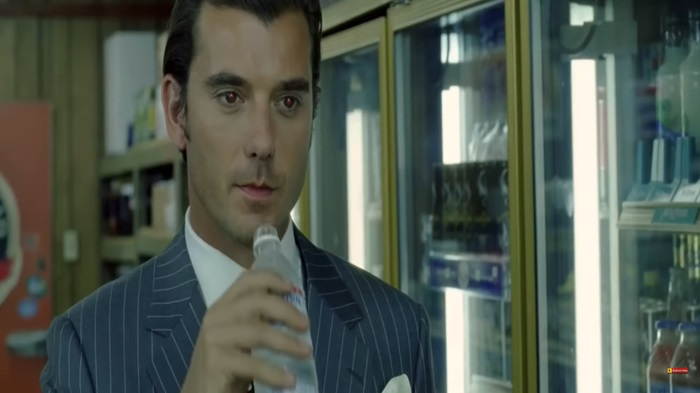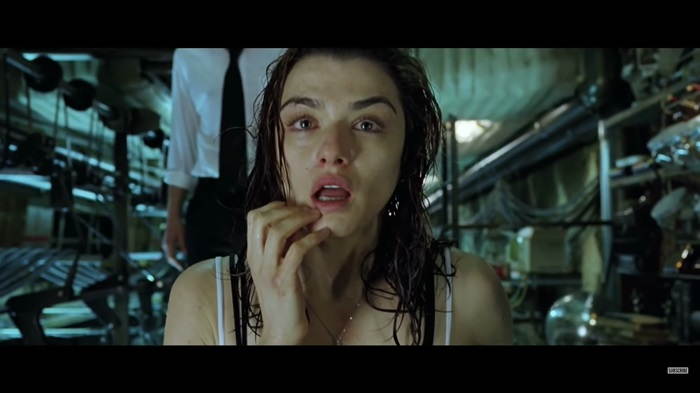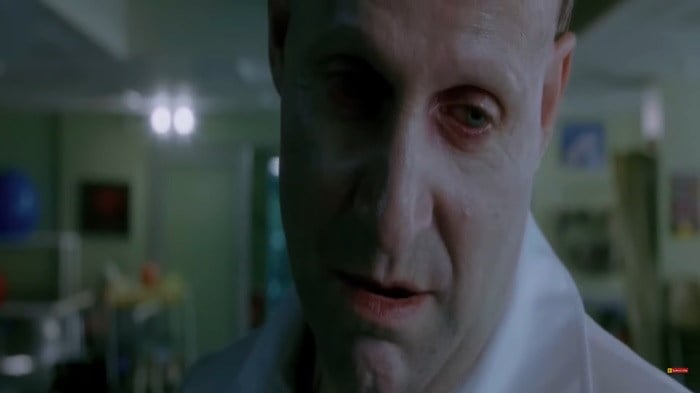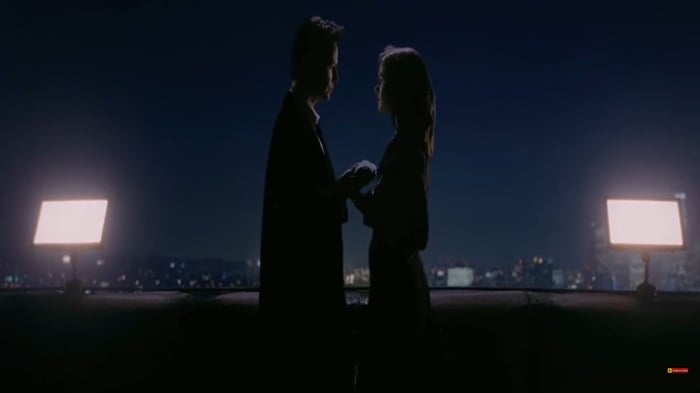Constantine is a 2005 supernatural action film directed by Francis Lawrence and based on the DC Comics/Vertigo Hellblazer comic book series. The movie stars Keanu Reeves as John Constantine, a detective with the ability to see and interact with supernatural beings, and it follows his journey to save the world from an impending demon invasion.
Plot Summary
The film begins with John Constantine, a man with the ability to perceive the supernatural world, trying to earn his way into heaven. Having attempted suicide in his youth, Constantine is damned to hell upon his eventual death due to the Catholic Church's teachings on suicide. He has been living with terminal lung cancer as a result of his constant chain-smoking. However, when a mysterious woman named Angela Dodson (Rachel Weisz) seeks his help in investigating her twin sister Isabel's apparent suicide, Constantine is drawn into a web of supernatural intrigue.

As Constantine investigates, he uncovers a sinister plot involving a powerful demon named Balthazar (Gavin Rossdale) and an ancient artifact called the Spear of Destiny. This artifact has the power to release Hell on Earth, and Balthazar plans to use it to unleash chaos and destruction. It is revealed that Isabel, Angela's twin sister, was a "psychic," capable of seeing angels and demons, and her death was not a suicide but rather a result of her supernatural abilities.
Throughout the film, Constantine works alongside Angela, who is initially skeptical of the supernatural but becomes increasingly convinced as she witnesses the otherworldly events and entities surrounding them. They are aided by Constantine's loyal friend and confidant, Chas Kramer (Shia LaBeouf), as they strive to prevent the apocalypse.

Central to the story is the concept of the balance between good and evil. Angels and demons both seek to influence the world of humans, and Constantine's role is to maintain that balance. The climax of the film occurs when Angela becomes possessed by the demon Mammon, the son of Satan, who plans to use her to cross over to Earth and bring about the apocalypse. Constantine and Angela must confront Mammon and prevent his destructive plan from coming to fruition.
The Ending Explained
The ending of Constantine takes place in the catacombs beneath a mental hospital, where Mammon intends to use Angela as a vessel to bring about the apocalypse. Constantine, Angela, and Chas confront Mammon in a climactic battle. Constantine, armed with knowledge from earlier in the film, reveals that Mammon's plan can only succeed if Angela willingly consents to becoming the vessel for his arrival. However, she resists, leading to a dramatic confrontation.

In a desperate move, Constantine uses the Spear of Destiny to pierce his own chest, temporarily dying and traveling to Hell. While in Hell, Constantine encounters Lucifer (Peter Stormare), who reveals that he knows Constantine's true intentions. Constantine wants to bargain with Lucifer to release Isabel's soul from Hell, as he feels responsible for her fate. Lucifer agrees to do so if Constantine can defeat Mammon and prevent the apocalypse, as this would also thwart God's plan.
Constantine, revived with newfound determination, returns to the living world with the Spear of Destiny and confronts Mammon. The final battle is intense, with Constantine and Angela working together to prevent Mammon from using her as a vessel. In the end, Constantine succeeds in using the Spear to destroy Mammon and thwart the apocalypse. This act of self-sacrifice and heroism is a defining moment for his character, demonstrating his commitment to protecting humanity.

After Mammon's defeat, Constantine is left with the Spear of Destiny, which he throws into the sea, ensuring it can never be used for evil again. The film concludes with Constantine and Angela sharing a final moment of connection, acknowledging the depth of the supernatural world and the sacrifices made to protect humanity. Constantine also receives a vision of Heaven, implying that his selfless act has earned him salvation.
Themes and Symbolism
The ending of Constantine is rich with thematic depth and symbolism. It explores the themes of redemption, free will, and the struggle between good and evil. Some of the key elements to consider include:
Redemption: Constantine's ultimate sacrifice and willingness to face eternal damnation for the sake of humanity highlight the theme of redemption. He defies his own fate and makes a selfless choice, showing that even someone as flawed and morally ambiguous as him can find a path to redemption.
Free Will: The film underscores the importance of free will in the face of destiny. Constantine's defiance and choice to determine his own fate rather than succumbing to preordained rules challenge the concept of determinism and the role of individual agency.
Good vs. Evil: The battle between Heaven and Hell is a central conflict in the film. The characters grapple with their own moral compasses, making choices that affect the fate of the world. Constantine's actions reflect the idea that morality is not black and white but rather a complex interplay of choices and consequences.
The Power of Love: Angela's psychic abilities and her connection to the divine emphasize the transformative power of love and compassion. Her love for her sister and her connection to Constantine ultimately play a crucial role in averting the apocalypse.
Religious Symbolism: The film draws heavily from Christian theology, with characters representing various biblical figures and concepts. Lucifer, Gabriel, and the Spear of Destiny are all deeply rooted in religious symbolism.
The ending of Constantine is a testament to the power of individual choice and redemption in the face of overwhelming odds and predetermined destinies.






